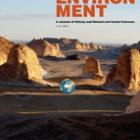Schönach, Paula. “Limitations of Environmental Success Without Successful Environmental Policy.” Global Environment 6 (2011): 122–49. Republished by the Environment & Society Portal, Multimedia Library. http://www.environmentandsociety.org/node/7559.
After the Second World War, Helsinki experienced decades of modernization and rising living standards, but also the adverse consequences of modern urban life. Air pollution from energy generation, industries, waste incineration and traffic became increasingly obvious from the late 1950s onward. Scientific uncertainty about the nature and severity of the problem, together with a lack of appropriate legal tools to combat air pollution, resulted in the failure of city officials’ attempts to deal effectively with polluters. Hegemonic attitudes concerning the nation’s economic future led to reluctance to demand costly air-protection measures—pollution was partly accepted as the price to pay for higher living standards. Paradoxically, in spite of this, the air quality in Helsinki eventually improved remarkably, after having been at its worst in the late 1960s. The main causes of this development—the transition to district heating and the relocation of polluting industries away from Helsinki—were a consequence of economic calculations in the context of an energy supply crisis and the specific geographic limitations of the city. The city’s improved air quality was a result of partial problem displacement combined with economically motivated structural changes. This paper examines the reasons for this environmentally advantageous outcome, which was achieved in the absence of a particularly successful environmental policy.
— Text from The White Horse Press website
All rights reserved. Made available on the Environment & Society Portal for nonprofit educational purposes only, courtesy of Paula Schönach, and XL edizioni.


